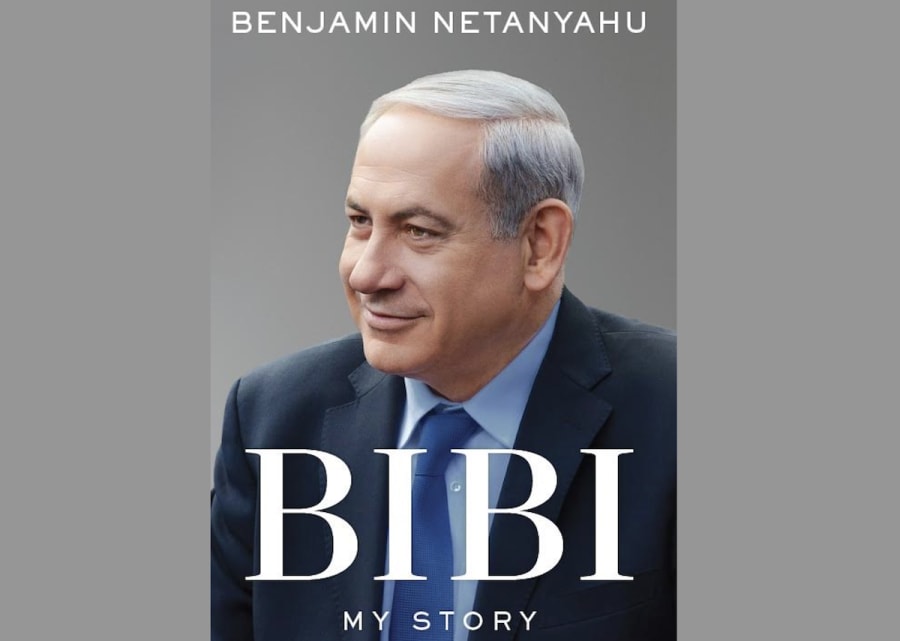Netanyahu’s spell-binding new memoir – with 36 references to Evangelicals – named ALL ISRAEL NEWS Book Club recommendation for November
“Bibi: My Story” is a must-read for every Evangelical as Netanyahu returns to power
JERUSALEM—No figure dominates Israel’s political landscape like Benjamin “Bibi” Netanyahu.
He is the most consequential – and the most controversial – leader in the modern history of the Jewish state.
A man of tremendous and historic and unparalleled achievements, as well as some significant weaknesses and blind spots.
Love him or hate him, the man towers over his rivals.
None of the past five elections (in less than four years) has been about policies or issues.
They have all been about whether voters are “pro-Bibi” or “anti-Bibi.”
Last year, much of the media wrote Bibi off as political roadkill.
The longest-serving prime minister in the modern history of the state was dethroned in the summer of 2021 by a coalition of former allies who had turned against him.
But as I’ve been saying ever since, Bibi is one shrewd political cat.
This week he proved that he has not used up all nine of his political lives.
After a stunning victory Tuesday night, Netanyahu is returning to Balfour Street as Israel’s next prime minister determined to accomplish many things, but two in particular.
Neutralize the nuclear and terror threat posed by Iran
Make peace with the Kingdom of Saudi Arabia, thus effectively ending the Arab-Israeli conflict once and for all
Now, therefore, is the perfect moment to take a closer look at who Netanyahu really is, where he comes from, what he believes, how he was raised, how he views Israel’s place in the region and the world, how he sees his role as Israel’s protector and defender, how he views the U.S.-Israel alliance, and how he views Evangelical Christians and the importance he places on our love for Israel and the Jewish people.
Enter his just-published memoirs, “Bibi: My Story.”
This is not your run-of-the-million campaign autobiography, most of which are tedious and boring and not worth the paper they are printed on.
Not so with Netanyahu’s.
This is an incredibly well-written, captivating – at times, spell-binding – account of his triumphs and trials.
And it is a must read for every Evangelical who loves Israel and prays for the peace of Jerusalem.
Indeed, the book is not just the story of a truly remarkable man but a truly remarkable family.
Netanyahu’s father – an ardent Zionist, journalist and historian – almost prophetically saw World War II and the Holocaust coming and pleaded with Jewish communities in Europe to come to British Mandated “Palestine” before it was too late.
Netanyahu’s older brother – Yoni – was one of the most decorated and revered commandoes in the Israeli Defense Force’s most-elite special forces unit, Sayeret Maktal.
The stories he shares about his father, brother and other members of his family alone are worth the price of the book because they reveal a great deal about his ideology and character.
But Netanyahu goes further, becoming more personal than I expected.
He writes about how he almost drowned during an intense fire fight with Egyptian forces on the Suez Canal.
About the wrenching pain and utter depression that he experienced when Yoni was shot and killed while leading an IDF rescue mission of Israelis who had been hijacked by Palestinian terrorists and taken to Entebbe, Uganda, in 1976.
He concedes that he grew up having no political interests or aspirations whatsoever – he wanted to be an architect.
Yet he also writes about those around him (including Yoni) who told him he would one day lead the country, why he thought that was crazy, and the surprising, winding, twisting journey that took him to the top spot, then down again, then up again, then down again.
I first met Netanyahu 22 years ago and have been watching him, his family, his team, and his rivals closely ever since.
So, I thought I knew Bibi’s story.
But I’m learning so much.
Not only is his life so colorful and eventful – he’s also an impressive and engaging writer, particularly in English since he spent so much of his formative childhood, high school, and college years in the U.S.
What’s more, I’ve been particularly intrigued while how often Netanyahu – not a religious man – talks about his growing interest in the Bible.
And his deep appreciation for Evangelical Christians and his remarkable knowledge of – and gratitude for – the rich history of “Christian Zionism.”
Thirty-two times he makes references to the Bible.
Forty-two times he makes references to Christians, 36 of which are specifically about Evangelicals.
Consider this fascinating excerpt from Chapter 29.
Landing in Washington in late January 1998, I prepared for my next round of discussions with the president [Bill Clinton]. My first meeting was with the Reverend Jerry Falwell, the evangelical leader and one of Israel’s staunchest supporters. With other Christian organizations, he assembled a packed house in DC’s Mayflower Hotel that gave me a rousing welcome.
Evangelical support for the restoration of the Jews in the Holy Land has deep roots, stretching back to the Christian pilgrims who visited it over the last two millennia. In the nineteenth century, British, American and European clergymen started agitating for the return of the Jews to the Land of Israel.
Christian Zionists even preceded Jewish Zionists and were quick to support their cause. In 1904, one of Herzl’s closest associates, the Anglican priest William Hechler, was the only person who was allowed to join Herzl’s family around his deathbed. It was to him that Herzl whispered his parting words to his followers: “Give my regards to all of them and tell them that I gave my heart’s blood to my people.”
Evangelical agitation for the ingathering of the exiles and the Jewish restoration in the Holy Land became politically forceful in America in the closing decades of the nineteenth century. William Blackstone, a self-ordained evangelical minister and close associate of Dwight Moody, the evangelist leader of the day, drafted the Blackstone Memorial—a petition asking President Benjamin Harrison to use his influence on behalf of the Jewish people. He called on the president to persuade European leaders to prevail upon the Ottoman sultan to open the province of Palestine for Jewish settlement and the creation of a Jewish national home.
“Why not give Palestine back to them [the Jews] again? According to God’s distribution of nations it is their home, an inalienable possession from which they were expelled by force….Why shall not the powers which under the treaty of Berlin in 1878 gave Bulgaria to the Bulgarians and Servia to the Servians [sic] now give Palestine back to the Jews? These provinces, as well as Roumania, Montenegro, and Greece, were wrested from the Turks and given to their natural owners. Does not Palestine as rightfully belong to the Jews?”….
In the closing decades of the twentieth century, evangelicals furthered their status as Israel’s most ardent backers. To evangelicals, the establishment of the Jewish state was the miraculous realization of Biblical prophecy. In places as far afield as Scandinavia, Africa, Polynesia, Brazil and Korea they established bastions of support for Israel.
But it was the powerful American evangelical community that exerted the most significant influence. They believed in the unity of Jerusalem, supported the Jewish communities in Judea and Samaria and raised funds to help the needy in Israel….
[Yitzhak] Rabin was the first prime minister to recognize the budding influence of evangelicals; [Menachem] Begin and [Yitzhak] Shamir appointed special liaisons to the evangelical community; I embraced evangelicals openly and wholeheartedly….
When evangelicals visited Israel, I was impressed with their familiarity with the Scriptures and ancient Biblical sites. They in turn were surprised at my familiarity with the Gospels and Christian history, which I gleaned from reading [Israeli Professor Joseph] Klausner and other writers. I was moved by their spiritual devotion to Judeo-Christian tenets, and the depth of feeling they experienced as they followed the footsteps of Jesus from the Sea of Galilee to the Temple Mount in Jerusalem.
I visited Christian churches of all denominations throughout Israel, engaging in historical and theological discussions with their devoted and usually thoughtful clergy. Walking one day in 2001 with my family in the Valley of the Cross, next to my home in Jerusalem, I knocked on the door of its fifth-century Greek Orthodox monastery. A young Greek priest kindly showed us about, the first time I had entered the imposing structure since I played as a child in the fields outside its massive walls. We were deeply saddened a few months later to learn that this young priest was murdered by terrorists on the outskirts of Jerusalem.
My alliance with Christian believers was thus both emotional and conceptual. The initial opposition to this alliance from Orthodox Jews had dissipated and was replaced by antireligious leftists who sometimes paradoxically evoked religious arguments. Didn’t I know that the evangelicals plan to convert all the Jews to Christianity at the End of Days?
Confronted with this assertion, I fell back on Rabin’s response: “We’ll argue about that when we get there.”
For these and many more reasons, I have enthusiastically chosen "Bibi: My Story" as the ALL ISRAEL NEWS Book Club recommendation for November.
It’s available in hardcover, e-book and audio formats.
I’m particularly enjoying the audio version as Netanyahu himself reads several of the chapters.

Joel C. Rosenberg is the editor-in-chief of ALL ISRAEL NEWS and ALL ARAB NEWS and the President and CEO of Near East Media. A New York Times best-selling author, Middle East analyst, and Evangelical leader, he lives in Jerusalem with his wife and sons.















